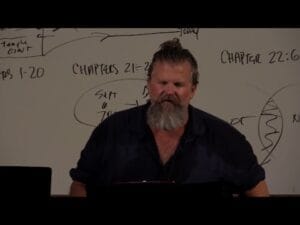
Revelation 22:1-5 Bible Teaching
Shawn's teaching on Revelation 21-22 highlights the New Jerusalem as a symbol of God's people under the new covenant, emphasizing spiritual victory, transformation, and divine presence.

Shawn's teaching on Revelation 21-22 highlights the New Jerusalem as a symbol of God's people under the new covenant, emphasizing spiritual victory, transformation, and divine presence.

Paul uses athletic metaphors to stress vigilance in faith, baptism as identification, and the Israelites' journey as a warning against disobedience and faithlessness.
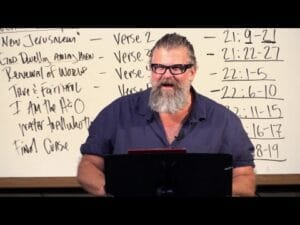
Revelation 21:9-21 describes the New Jerusalem's descent, symbolizing the New Covenant's inclusivity. Shawn highlights Revelation 21:1-8's themes of renewal and judgment. The Shekinah glory now rests on the Church, symbolizing believers' unity. The city, with gates and foundations named after tribes and apostles, signifies universal access to God's kingdom. The cube-shaped city, adorned with precious stones, represents purity. Revelation 21:22-27 emphasizes God's eternal light. The integration of Gentiles and submission of kings to Christ are current realities, not future events. The vision portrays a transformative era under the new covenant.

Paul and Shawn emphasize self-discipline, perseverance, and love in the Christian faith, likening it to a race for eternal rewards, requiring dedication and overcoming trials.

Revelation 21 symbolizes the New Jerusalem as the faithful Church, emphasizing spiritual fulfillment over material, transitioning from old to new covenant, and eternal life through Christ.

Paul defends his integrity in 1 Corinthians 9, emphasizing preaching without charge, adapting to others, and living off the gospel, prioritizing spiritual calling over gain.

Revelation 21 describes a new heaven and earth, New Jerusalem as a heavenly city, symbolizing the church's spiritual identity, unity in Christ, and life beyond death.

Paul defends apostleship rights, chooses not to use them to avoid hindering the gospel. Shawn emphasizes voluntary, cheerful giving, following Paul's example of independence.
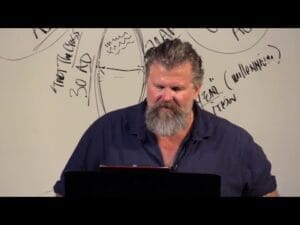
Shawn's teaching focuses on Revelation 20:8-15, the transition from the Old to New Covenant with Jerusalem's fall in 70 AD, and the imminent fulfillment of prophecies.

Shawn teaches on 1 Corinthians 8:7-13, emphasizing love and respect for weaker faith, avoiding actions that cause others to stumble, and prioritizing others' spiritual well-being.
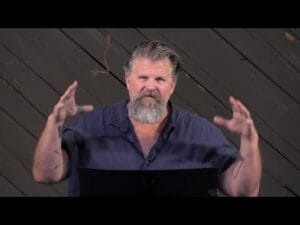
Shawn teaches Full Preterism, asserting all biblical prophecies are fulfilled, including Christ's return. Revelation is allegorical, focusing on persecution under Nero, with Gog and Magog symbolizing eschatological conflicts. Christ's spiritual kingdom fulfills Davidic prophecies, countering premillennial views.
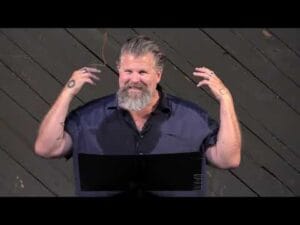
Paul's teaching to Corinthians: Idols are powerless; love and edification matter. Knowledge without love leads to arrogance. Prioritize love over legalism. 1 Cor 8:1-3.

Paul advises singleness for spiritual focus; marriage involves worldly concerns. Bible translations evolved from Vulgate to King James. Interpretations vary; consult multiple versions.
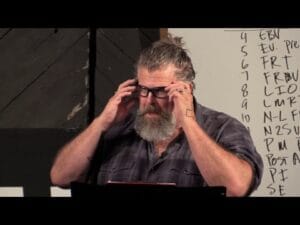
EBV claims the resurrection occurred in 70 AD with Christ's parousia, ending God's redemptive history. It emphasizes spiritual transformation, ongoing salvation, and rejects new revelations.
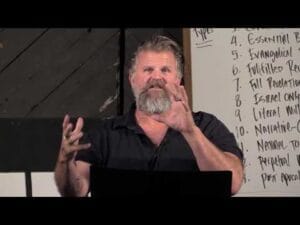
Shawn examines Matthew 27:52-53, arguing for a temporary resurrection like Lazarus, not eternal. He aligns with Covenant Eschatology, emphasizing fulfillment by 70 AD.

Believers should maintain peace in marriages, focus on internal transformation, serve God in current life situations, and prioritize faith over external changes.

Paul advises believers to let unbelieving spouses leave for peace, emphasizing spiritual maturity and peace over conflict. Christians should embody the fruits of the Spirit and wear God's armor for spiritual warfare.

Shawn teaches resurrection as a spiritual event, not physical, emphasizing love and spiritual truths over literal interpretations. He critiques traditional doctrines and encourages diverse views.

Shawn teaches that Paul's marital guidance in 1 Corinthians 7 is context-specific, emphasizing spiritual growth over rigid scripture application. Marriage is sacred, guided by the Spirit, and unity is paramount.
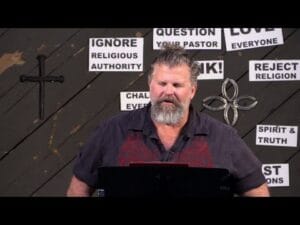
Shawn's teaching reinterprets Revelation 20, emphasizing Satan's defeat by Jesus, the symbolic "thousand years" as martyrs reigning with Christ, and judgment from heaven.